Sustainability and climate change - Innovation, costs, and impact
Video playlist
Green innovation policies
Our ability to reduce greenhouse gas emissions will determine how fast we can stop global warming. In his Public Paper, UBS Foundation Professor David Hémous explains that achieving the necessary reduction in emissions – while maintaining (and improving) worldwide living standards – can only be accomplished through innovation. Innovation has the potential to combine the necessary decline in greenhouse gas emissions with sustained economic growth; and it responds largely and rapidly to price signals. However, innovation is not a silver bullet. It is conducted by scientists and firms, it reacts to market and policy incentives, and needs therefore be regulated by governments. Hémous reviews recent economic research on the role of innovation in the design of climate policy, he evaluates the effectiveness of current technological trends, and introduces a new economic climate policy innovation framework.
Our ability to reduce greenhouse gas emissions will determine how fast we can stop global warming. In his Public Paper, UBS Foundation Professor David Hémous explains that achieving the necessary reduction in emissions – while maintaining (and improving) worldwide living standards – can only be accomplished through innovation. Innovation has the potential to combine the necessary decline in greenhouse gas emissions with sustained economic growth; and it responds largely and rapidly to price signals. However, innovation is not a silver bullet. It is conducted by scientists and firms, it reacts to market and policy incentives, and needs therefore be regulated by governments. Hémous reviews recent economic research on the role of innovation in the design of climate policy, he evaluates the effectiveness of current technological trends, and introduces a new economic climate policy innovation framework.
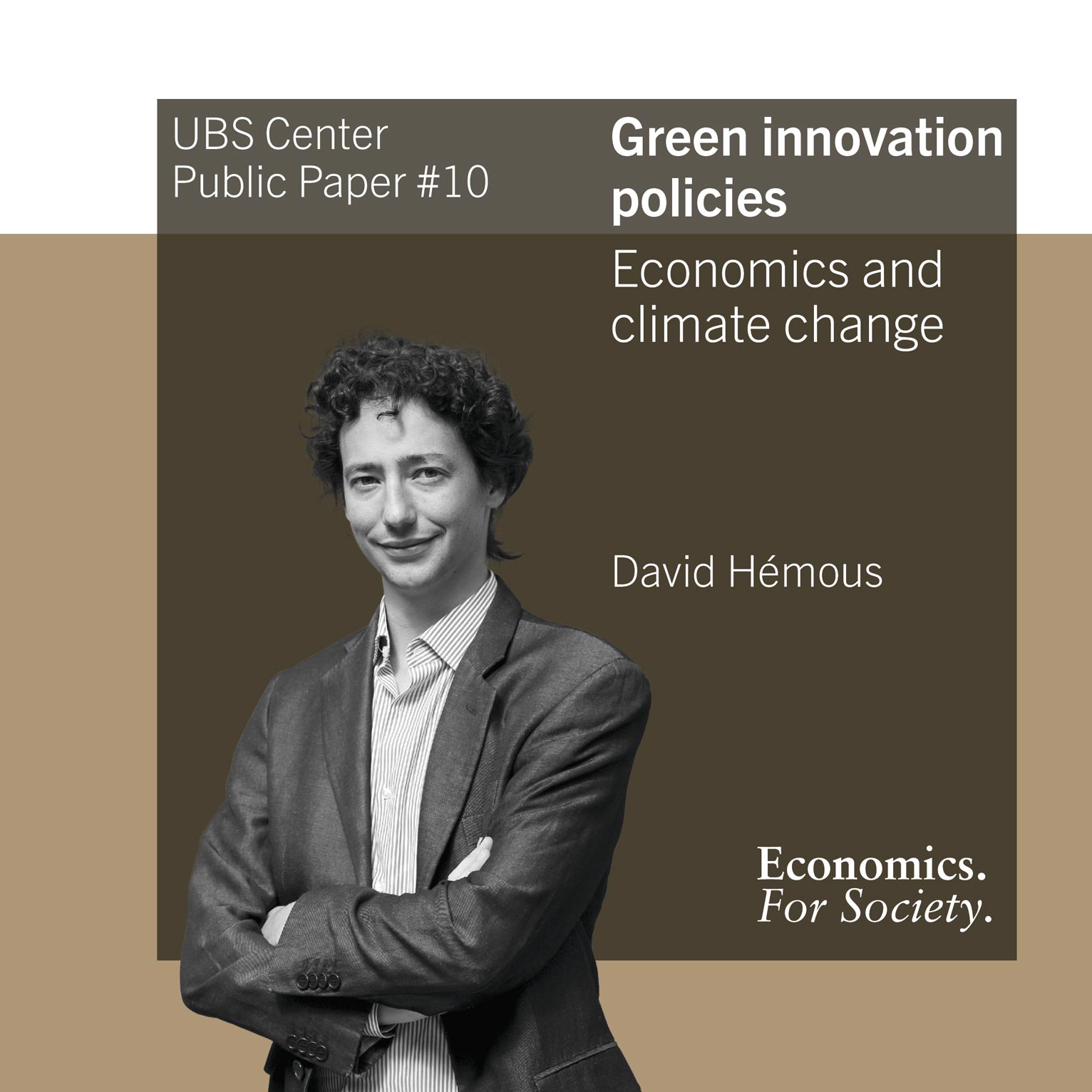
Related content
NZZ interview with Nobel laureate Jean Tirole UBS Center Insight 29.11.2021 read
Nobelpreisträger Jean Tirole: «Wenn Politiker viele grüne Jobs versprechen, bin ich sehr skeptisch. Wäre das so einfach, gäbe es diese längst» NZZ 11.11.2021 lesen
Plötzlich wächst Soja im Norden Kanadas – welche Länder sonst noch vom Klimawandel profitieren NZZamSonntag 11.09.2021 lesen
The economic geography of global warming – Esteban Rossi-Hansberg UBS Center Webcast 8.9.2021 watch
Nobel laureate William Nordhaus: The economics of climate change UBS Center Opinion 28.1.2020 watch
Ökonom Ernst Fehr: «Es ist ein Gebot der Vernunft, eine CO2-Steuer einzuführen» NZZ am Sonntag 23.2.2019 lesen
Photo gallery
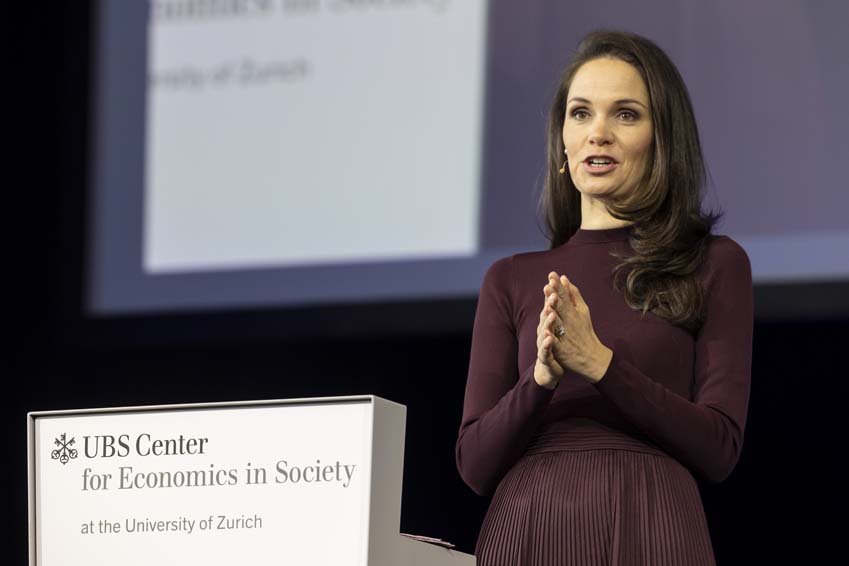
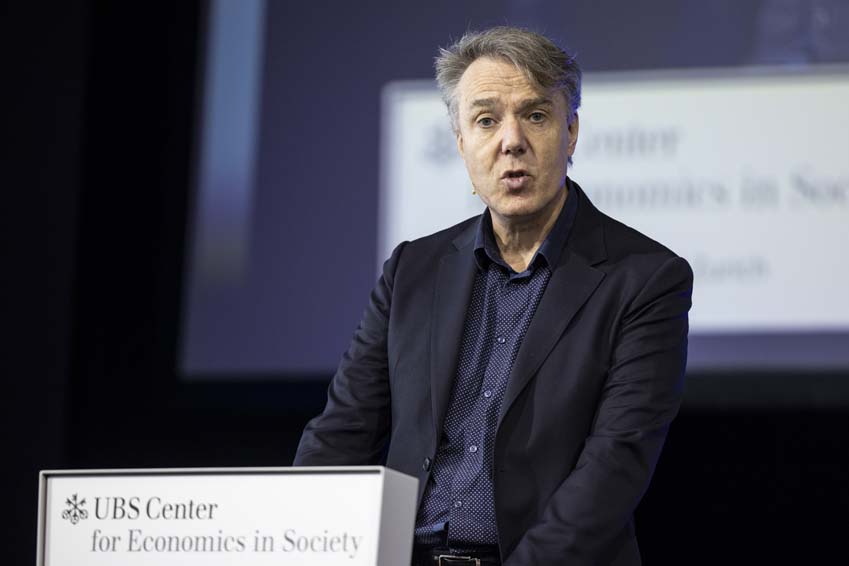
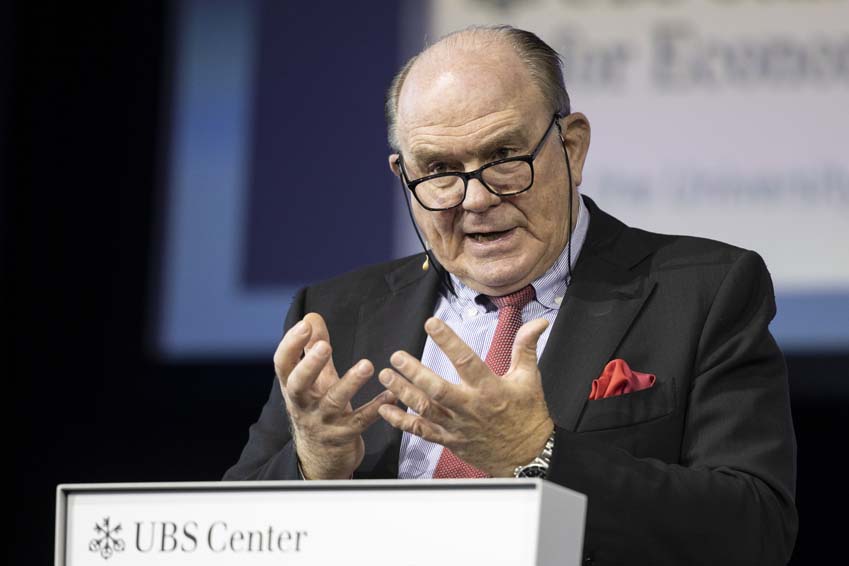
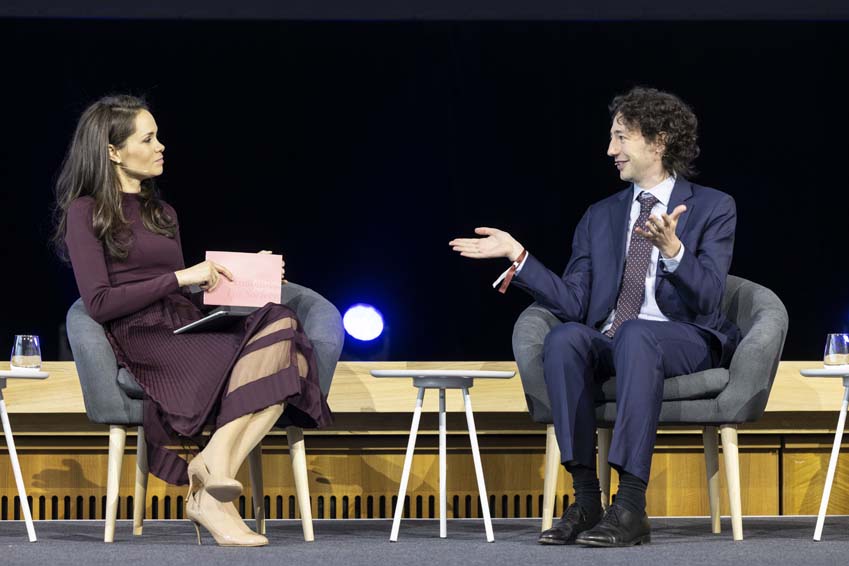
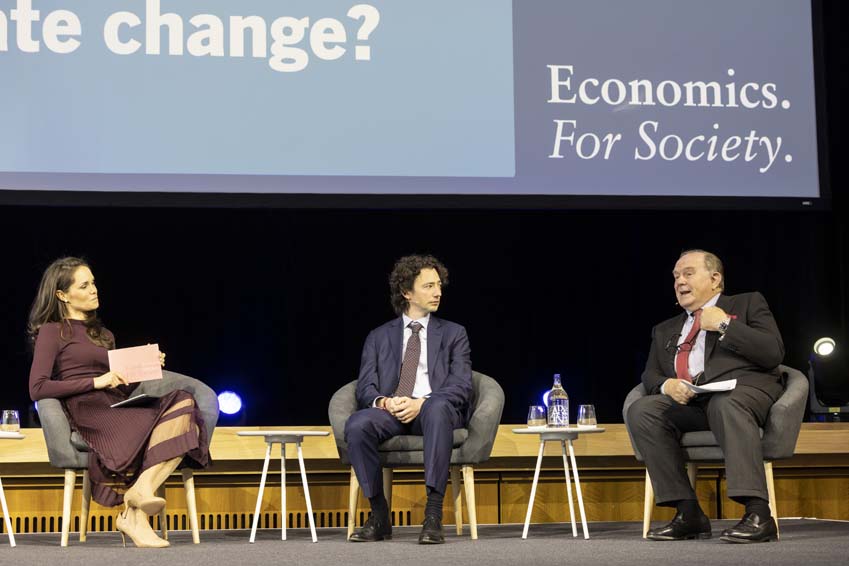
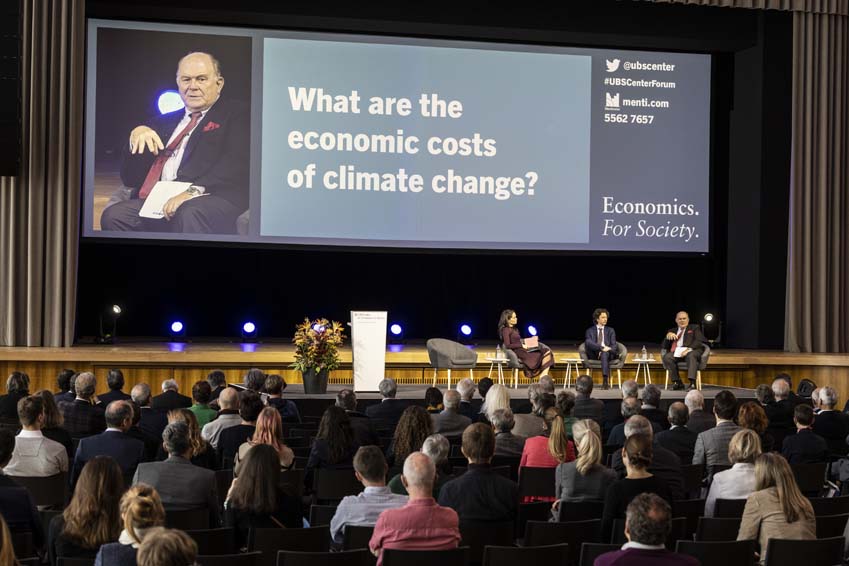
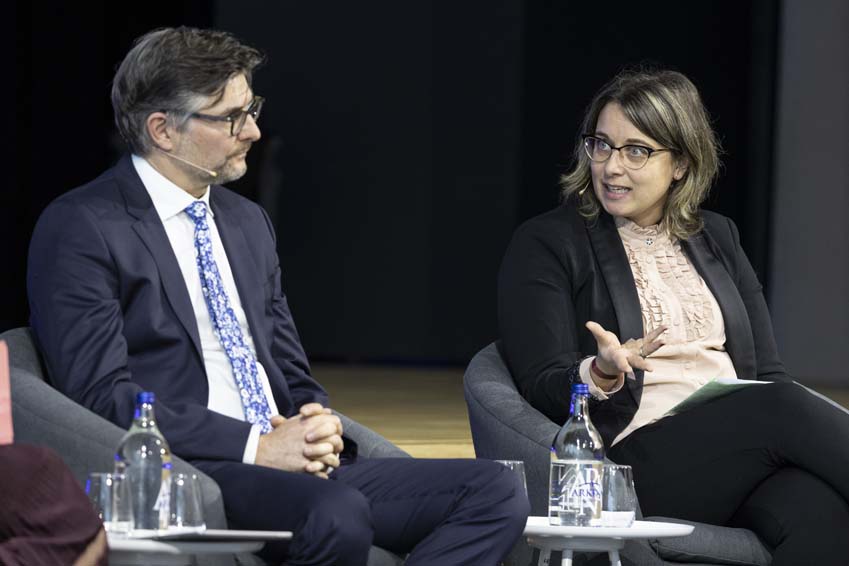
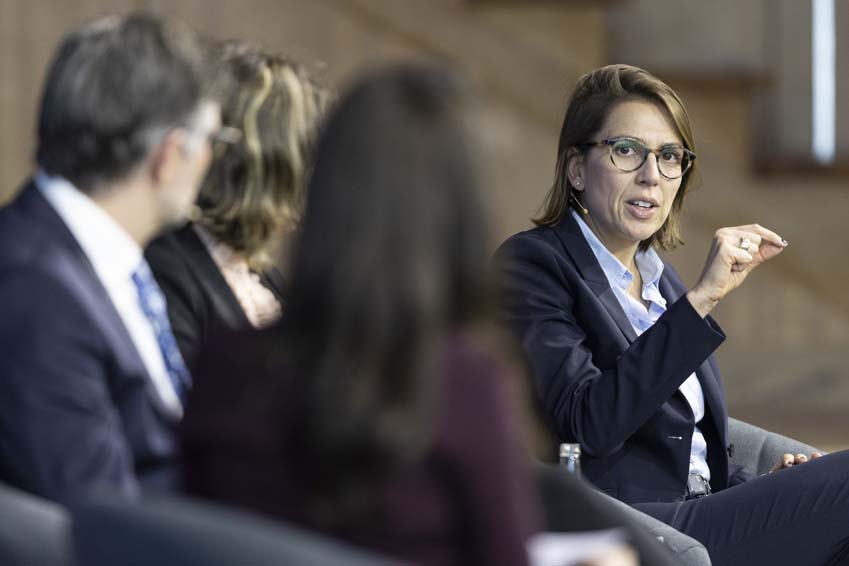
Overview
What are the costs of climate change and what are sensible measures in the fight against global warming? At this year’s Forum for Economic Dialogue, we discussed these central questions from an economic perspective.
Climate change has far-reaching negative consequences, including economic losses. What does climate change mean for one of the world’s biggest providers of reinsurance and insurance? Walter B. Kielholz (Swiss Re) answered this question in his opening keynote and talk about the economic costs of climate change. In our panel discussion, Sabine Magri (UBS), Elisa Ossola (European Commission, Joint Research Centre), and Lasse Heje Pedersen (Copenhagen Business School) addressed the question of whether sustainable investing can save the world. The disputation with Lucas Bretschger (ETH Zurich), Bjørn Lomborg (Copenhagen Consensus Center), and Rick van der Ploeg (Universities of Oxford and Amsterdam) on the social cost of climate change was a lively discussion, as promised. They debated questions about the benefits and costs of reducing CO2-emissions, who should bear the costs, and how to get people to contribute and share in the cost.
Concluding the event, Nobel laureate Jean Tirole delivered the Zurich Lecture of Economics in Society on the political economy of climate change. How can we sustainably reduce CO2 emissions? What concrete measures are feasible, sustainable, and socially acceptable at the global level? Jean Tirole put these questions in the context of international cooperation, focusing on institutions, policies, and regulations.
The audience attended the Forum at the Kongresshaus in Zurich or joined us via livestream on our website.
What are the costs of climate change and what are sensible measures in the fight against global warming? At this year’s Forum for Economic Dialogue, we discussed these central questions from an economic perspective.
Climate change has far-reaching negative consequences, including economic losses. What does climate change mean for one of the world’s biggest providers of reinsurance and insurance? Walter B. Kielholz (Swiss Re) answered this question in his opening keynote and talk about the economic costs of climate change. In our panel discussion, Sabine Magri (UBS), Elisa Ossola (European Commission, Joint Research Centre), and Lasse Heje Pedersen (Copenhagen Business School) addressed the question of whether sustainable investing can save the world. The disputation with Lucas Bretschger (ETH Zurich), Bjørn Lomborg (Copenhagen Consensus Center), and Rick van der Ploeg (Universities of Oxford and Amsterdam) on the social cost of climate change was a lively discussion, as promised. They debated questions about the benefits and costs of reducing CO2-emissions, who should bear the costs, and how to get people to contribute and share in the cost.
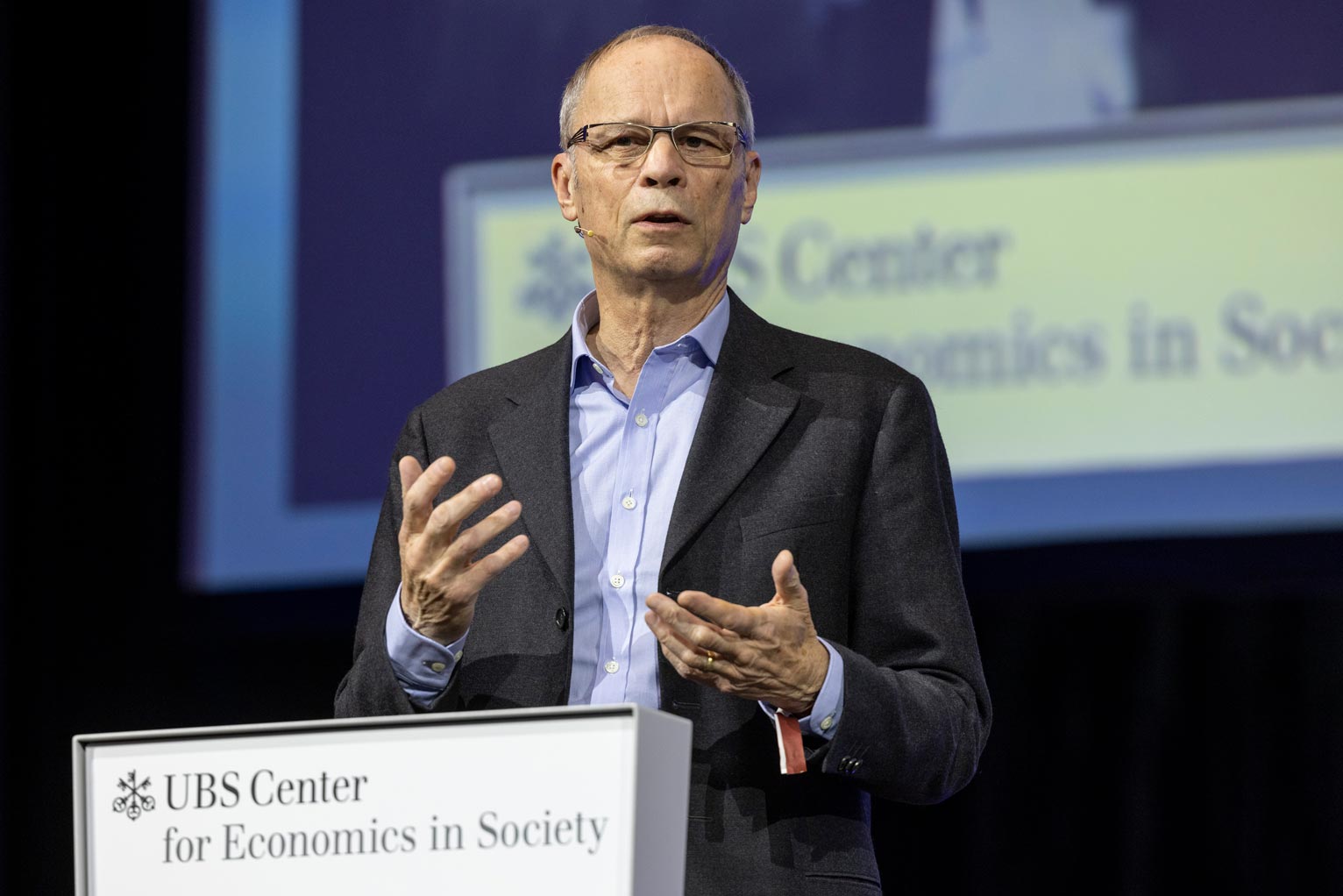
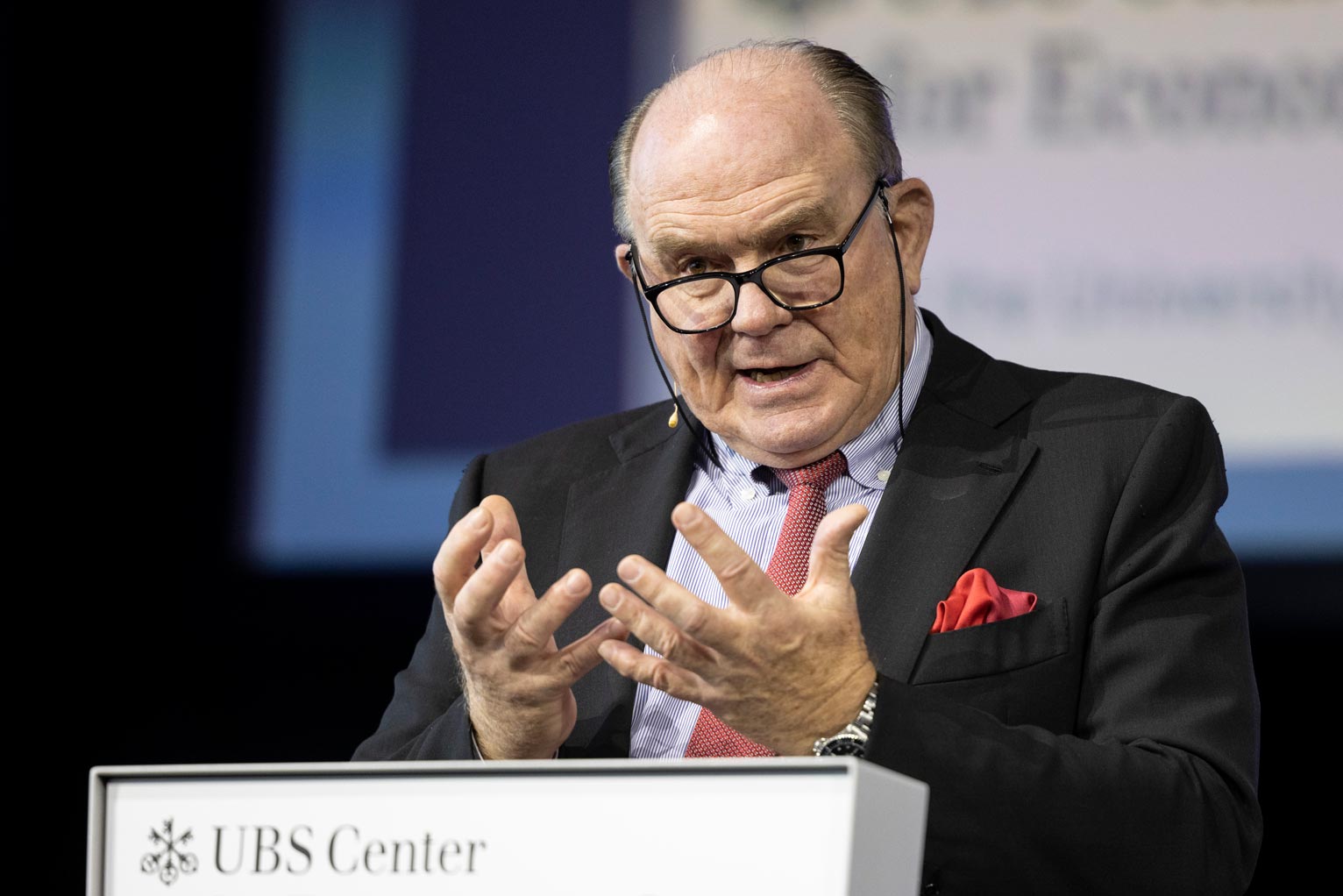
Livestream
Program
| 11.30 |
Door opening |
| 12.30 |
Welcome address Joachim Voth (UBS Center, University of Zurich) |
| 12.45 |
Keynote: Economic costs of climate change Walter B. Kielholz, Honorary Chairman and former Chairman of the Board of Directors (Swiss Re) |
| 13.30 |
Coffee break |
| 14.00 |
Panel: Can sustainable investing save the world? Sabine Magri (UBS), Elisa Ossola (European Commission), Lasse Heje Pedersen (Copenhagen Business School) |
| 15.00 |
Coffee break |
| 15.30 |
Disputation: Social cost of climate change Lucas Bretschger (ETH Zurich), Bjørn Lomborg (Copenhagen Consensus Center), Rick van der Ploeg (Universities of Oxford and Amsterdam) |
| 16.30 |
Reception |
| 17.00 |
Zurich Lecture of Economics in Society: The political economy of climate change Nobel laureate Jean Tirole (Toulouse School of Economics) |
| 18.00 |
End of event |
| 11.30 |
Door opening |
| 12.30 |
Welcome address Joachim Voth (UBS Center, University of Zurich) |
| 12.45 |
Keynote: Economic costs of climate change Walter B. Kielholz, Honorary Chairman and former Chairman of the Board of Directors (Swiss Re) |
| 13.30 |
Coffee break |
| 14.00 |
Panel: Can sustainable investing save the world? Sabine Magri (UBS), Elisa Ossola (European Commission), Lasse Heje Pedersen (Copenhagen Business School) |
| 15.00 |
Coffee break |
| 15.30 |
Disputation: Social cost of climate change Lucas Bretschger (ETH Zurich), Bjørn Lomborg (Copenhagen Consensus Center), Rick van der Ploeg (Universities of Oxford and Amsterdam) |
| 16.30 |
Reception |
| 17.00 |
Zurich Lecture of Economics in Society: The political economy of climate change Nobel laureate Jean Tirole (Toulouse School of Economics) |
| 18.00 |
End of event |
Speakers
Lucas Bretschger is Full Professor of Economics/Resource Economics at ETH Zurich and Past-President of the European Association of Environmental and Resource Economists (EAERE). His main research interests are the theory and policy of natural resources and the environment as well as growth, trade, climate, and public economics. He is a Research Associate at the University of Oxford and holds the title of Professor at the University of Zurich. He has been a consultant to the Swiss government on climate issues, a member of the Swiss delegation at international climate negotiations, and the founder of the SURED Conference on Monte Verità, which brings together leading experts on sustainable resource use and economic dynamics.
Walter B. Kielholz is Honorary Chairman and the Former Chairman of the Board of Directors of Swiss Re. He is Vice Chairman of the Institute of International Finance and Member of the European Financial Services Round Table.
Dr. Bjorn Lomborg ist Präsident des Copenhagen Consensus Center und Visiting Fellow an der Hoover Institution der Stanford University. Das Copenhagen Consensus Center ist ein Think-Tank, der die intelligentesten Wege zum Guten erforscht. Für diese Arbeit wurde Lomborg vom TIME Magazine zu einem der 100 einflussreichsten Menschen der Welt ernannt. Zu seinen zahlreichen Büchern gehören "False Alarm: How Climate Change Panic Costs Us Trillions, Hurts the Poor, and Fails to Fix the Planet", "The Skeptical Environmentalist", "Cool It", "How to Spend $75 Billion to Make the World a Better Place", "The Nobel Laureates' Guide to the Smartest Targets for the World 2016-2030" und "Prioritizing Development: A Cost Benefit Analysis of the UN's SDGs".
Sabine Magri is the COO of UBS Switzerland AG. In this role, she is responsible for UBS’ sustainability and impact strategy in Switzerland. A focus of Sabine’s work lays on setting the course for the successful transition to a sustainable and low-carbon business in line with the commitments UBS made as a founding partner of the Principles of Responsible Banking and the Net Zero Banking Alliance. To that end, Sabine and her team formulated an ambitious action plan and work on innovative basic banking, lending, and transition financing solutions. They are also active in the area of advocacy and thought leadership in order to proactively propose political and regulatory action.
Elisa Ossola is a scientific officer at the European Commission, Joint Research Centre - Finance and Economy Unit - Growth & Innovation Institute- in Ispra (VA, Italy). She is working on projects for the European Commission dealing with sustainable finance, financial integration, systemic importance and, systemic risk. She is also providing policy in the area of banking regulation. She received her Ph.D. from the Università della Svizzera Italiana (USI), Switzerland, in 2013.
Lasse Heje Pedersen is a financial economist who loves to solve real-world problems using models and data. A Stanford PhD, he is a finance professor at Copenhagen Business School and NYU and a principal at AQR. He has served as Director of the American Finance Association, in the Liquidity Working Group meeting at the Federal Reserve Bank of New York to address liquidity issues, on the Economic Advisory Boards of NASDAQ and FTSE, and on several editorial boards, including the Journal of Finance and Quarterly Journal of Economics. His academic awards include the Bernácer Prize to the best E.U. economist under 40 years of age, the Banque de France-TSE Prize, the Stephen A. Ross Prize, Fama-DFA Prizes, the Michael Brennan Award, the Brattle Prize, and the Graham and Dodd Award.
Rick van der Ploeg is Professor of Economics and Research Director of the Oxford Centre for the Analysis of Resource Rich Economies and adjunct University Professor Environmental Economics at the University of Amsterdam. Research interests are in macroeconomics and public finance with applications to economics of climate and natural resources. He is a former politician in the Netherlands (1994-2002).
Ernst Fehr promovierte 1986 an der Universität Wien. Seine Arbeit hat gezeigt, wie soziale Motive die Zusammenarbeit, Verhandlungen und Koordination zwischen Akteuren beeinflussen und wie sich dies auf das Funktionieren von Anreizen, Märkten und Organisationen auswirkt. Seine Arbeit identifiziert wichtige Bedingungen, unter denen die Zusammenarbeit floriert und zusammenbricht. Die Arbeit an den psychologischen Grundlagen von Anreizen informiert uns über die Vorzüge und Grenzen finanzieller Anreize für die Vergütung von Mitarbeitern. In anderen Arbeiten hat er die Bedeutung der Unternehmenskultur für die Leistung von Unternehmen gezeigt. In neueren Arbeiten zeigt er, wie sich soziale Motive darauf auswirken, wie Menschen über Fragen im Zusammenhang mit der Umverteilung von Einkommen abstimmen und wie Unterschiede in der inneren Geduld der Menschen mit der Ungleichheit des Wohlstands zusammenhängen. Seine Arbeit hat innerhalb und außerhalb der Wissenschaft mit mehr als 100.000 Zitaten von Google Scholar große Resonanz gefunden, und seine Arbeit wurde mehrfach in internationalen und nationalen Zeitungen erwähnt.
David Hémous received his PhD from Harvard University in 2012. He is a macroeconomist working on economic growth, climate change and inequality. His work highlights that innovation responds to economic incentives and that public policies should be designed taking this dependence into account. In particular, he has shown in the context of climate change policy that innovations in the car industry respond to gas prices and that global and regional climate policies should support clean innovation to efficiently reduce CO2 emissions. His work on technological change and income distribution shows that higher labor costs lead to more automation, and that the recent increase in labor income inequality and in the capital share can be explained by a secular increase in automation. He has also shown that innovation affects top income shares. He was awarded an ERC Starting Grant on 'Automation and Income Distribution – a Quantitative Assessment' and he received the 2022 'European Award for Researchers in Environmental Economics under the Age of Forty'.
Martin Meyer is a Swiss journalist, publicist, essayist and author. In 1974 he started his career at the Neue Zürcher Zeitung as editor for the Feuilleton, and became editor-in-chief of the Feuilleton in 1992. In addition to his work as a journalist Martin Meyer has written and published several books, among others about Ernst Jünger, Thomas Mann, Switzerland and Europe, Ende der Geschichte? and the debates about Krieg der Werte. Recently, he published a biography about Albert Camus. Meyer is corresponding member of the Deutsche Akademie für Sprache und Dichtung and received an honorary PhD of the University of St. Gallen.
Carolin Roth ist freiberufliche Broadcastjournalistin für CNBC International und Konferenz-/Veranstaltungsmoderatorin mit einer Leidenschaft für komplexe Themen aus den Bereichen Finanzen, Wirtschaft und Politik. Sie verfügt über 12 Jahre Erfahrung im Live-Fernsehen als internationale Finanz- und Wirtschaftsjournalistin bei CNBC.
Joachim Voth received his PhD from Oxford in 1996. He works on financial crises, long-run growth, as well as on the origins of political extremism. He has examined public debt dynamics and bank lending to the first serial defaulter in history, analysed risk-taking behaviour by lenders as a result of personal shocks, and the investor performance during speculative bubbles. Joachim has also examined the deep historical roots of anti-Semitism, showing that the same cities where pogroms occurred in the Middle Age also persecuted Jews more in the 1930s; he has analyzed the extent to which schooling can create radical racial stereotypes over the long run, and how dense social networks (“social capital”) facilitated the spread of the Nazi party. In his work on long-run growth, he has investigated the effects of fertility restriction, the role of warfare, and the importance of state capacity. Joachim has published more than 80 academic articles and 3 academic books, 5 trade books and more than 50 newspaper columns, op-eds and book reviews. His research has been highlighted in The Economist, the Financial Times, the Wall Street Journal, the Guardian, El Pais, Vanguardia, La Repubblica, the Frankfurter Allgemeine, NZZ, der Standard, der Spiegel, CNN, RTN, Swiss and German TV and radio.
Lucas Bretschger is Full Professor of Economics/Resource Economics at ETH Zurich and Past-President of the European Association of Environmental and Resource Economists (EAERE). His main research interests are the theory and policy of natural resources and the environment as well as growth, trade, climate, and public economics. He is a Research Associate at the University of Oxford and holds the title of Professor at the University of Zurich. He has been a consultant to the Swiss government on climate issues, a member of the Swiss delegation at international climate negotiations, and the founder of the SURED Conference on Monte Verità, which brings together leading experts on sustainable resource use and economic dynamics.
Walter B. Kielholz is Honorary Chairman and the Former Chairman of the Board of Directors of Swiss Re. He is Vice Chairman of the Institute of International Finance and Member of the European Financial Services Round Table.
Dr. Bjorn Lomborg ist Präsident des Copenhagen Consensus Center und Visiting Fellow an der Hoover Institution der Stanford University. Das Copenhagen Consensus Center ist ein Think-Tank, der die intelligentesten Wege zum Guten erforscht. Für diese Arbeit wurde Lomborg vom TIME Magazine zu einem der 100 einflussreichsten Menschen der Welt ernannt. Zu seinen zahlreichen Büchern gehören "False Alarm: How Climate Change Panic Costs Us Trillions, Hurts the Poor, and Fails to Fix the Planet", "The Skeptical Environmentalist", "Cool It", "How to Spend $75 Billion to Make the World a Better Place", "The Nobel Laureates' Guide to the Smartest Targets for the World 2016-2030" und "Prioritizing Development: A Cost Benefit Analysis of the UN's SDGs".
Sabine Magri is the COO of UBS Switzerland AG. In this role, she is responsible for UBS’ sustainability and impact strategy in Switzerland. A focus of Sabine’s work lays on setting the course for the successful transition to a sustainable and low-carbon business in line with the commitments UBS made as a founding partner of the Principles of Responsible Banking and the Net Zero Banking Alliance. To that end, Sabine and her team formulated an ambitious action plan and work on innovative basic banking, lending, and transition financing solutions. They are also active in the area of advocacy and thought leadership in order to proactively propose political and regulatory action.